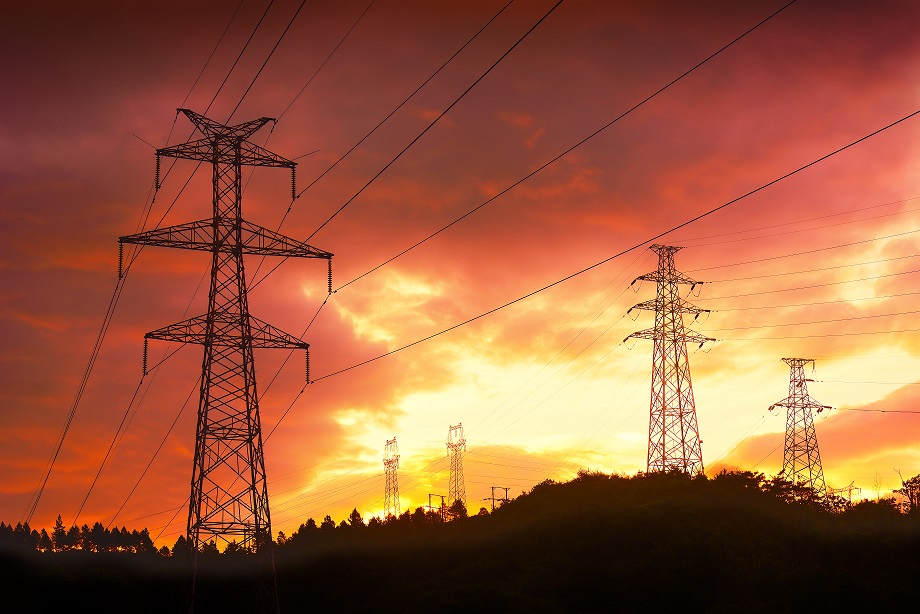The first call for tenders for access to the capacity of certain nodes of the electricity grid for renewable generation facilities is fast approaching
Published on 28th July 2022
The Ministry for Ecological Transition and the Demographic Challenge has published a first draft of the Order that would call for tenders for access capacity in certain nodes of the transmission network.

Among the new features in the area of energy management introduced by Royal Decree 1183/2020, of 29 December, on access and connection to the electricity transmission and distribution networks ("RD 1183/2020") is the possibility of calling tenders to grant access capacity to certain points of the transmission grid in certain circumstances, as an exception to the general rule of time priority for the management of access and connection to the electricity grid. In recent years, the increase in the number of renewable projects to be developed in Spain, together with an increasingly congested electricity grid, has turned access capacity into a scarce asset, and therefore of great value.
The nodes in which the circumstances that make them eligible for inclusion in the access capacity tenders exist must be indicated by the TSO (Red Eléctrica de España) and be reserved for this purpose by means of a resolution of the Secretary of State for Energy ("Secretary"). In this regard, between 2021 and 2022, the Secretaryt has issued three resolutions agreeing to hold access capacity tenders in a total of 184 nodes of the transmission grid.
In accordance with the provisions of RD 1183/2020, the call for access capacity tenders must be carried out by Order of the Minister for Ecological Transition and the Demographic Challenge , within a maximum period of 12 months from the date of the resolution of the Secretary reserving the capacity of certain nodes for the holding of a tender, although the expiry of this period does not mean that the access capacity reserved for tender is released for its award due to the principle of time priority. In this regard, on 10 June 2022, the draft order was published, which calls for tenders for access capacity at certain nodes of the transmission network ("Draft Order"), which has been published for comments until 28 June.
The Draft Order includes a call for tenders for access capacity at a total of 17 network nodes with a total access capacity of 5845 MW. At first glance, everything leads us to believe that the Order that is finally published will call for tenders for these 17 network nodes, but it cannot be ruled out that the Order that is finally published will include a variation of the nodes whose access is subject to tender.
Below, we have analysed the most relevant aspects of the Draft Order:
Scope of the call
The call reaches all those "new electricity generation facilities that use renewable primary energy sources and for storage facilities" that are connected to any of the nodes included in the call, being able to do so either directly to the transmission grid or to the distribution grid. However, in the case of facilities connected to the distribution grid, the order makes the possibility of participating in the tender conditional on the node having distribution support positions. Furthermore, it is established as a necessary condition in these cases that the installation has an influence on the transmission grid in the sense that an acceptability report from the TSO is required.
Assessment criteria and Scoring
Article 19 of Royal Decree 1183/2000 establishes a series of criteria to be applied in access capacity tenders, some of which must be included in the tender, such as time criteria or those associated with generation technology, and others whose inclusion is optional, such as socio-economic and environmental criteria.
The Draft Order includes the following criteria, including optional criteria linked to socio-economic and environmental aspects.
Time criteria
It values bringing forward the date of the commitment to inject energy with respect to the fifth milestone (obtaining the definitive administrative authorisation for operation) of those set out in Article 1 of Royal Decree-Law 23/2020, of 23 June, which approves measures in the field of energy and other areas for economic reactivation, with 0.5 points for each month before the expiry of this milestone, up to a maximum of 12 points.
The Draft Order grants an additional point to projects that opt for capacity through the distribution network if they can prove that they had applied for the granting of permits for access and connection to the same distribution network prior to the effective date of the order, and that the DNO (distribution network operator) has notified them of the suspension of the procedure.
Criteria associated with technology
The maximisation of energy from renewable sources in safe conditions for the system and the contribution to the regularity or economic sustainability of the system are valued, including criteria such as the level of self-consumption, energy storage, hybridisation or repowering.
Criteria associated with socio-economic impact and activation of demographic challenge areas
The impact on the areas where the installations are located is assessed, either in the municipality where the installation is located or in adjacent municipalities.
This group includes criteria associated with:
- Expropriation of land (the less expropriation, the lower the social impact and the higher the score).
- Direct jobs generated during the construction and operation phases of the plant
- Economic impact on the value chain
- Percentage of participation in the project of local investors and of companies and administrations of the municipality where the installation is located.
- Reinvestment of the annual income obtained in the area (if it is higher than 1%, additional points will be obtained).
- Provision of a carbon footprint registration stamp, offsetting and carbon dioxide absorption projects.
Environmental criteria
The least environmental impact caused by the project is assessed, evaluating separately the impact of the plant and the impact of the new evacuation infrastructures to be built. This group also includes a criterion that values the use of existing sites (for example, by repowering) with the consequent minimisation of the impact on the area.
The maximum score that can be obtained for each of the above criteria, as well as the relative weight of each of them, is as follows:
- Time criteria: maximum points (13) and weight (16.5%)
- Technology-related criteria: maximum points (25) and weight (31.6%)
- Socio-economic and demographic challenge criteria: maximum points (19) and weight (24.1%)
- Environmental criteria: maximum points (22) and weight (27,8%)
In this sense, we must expect modifications to be made, at least in relation to the evaluation of the different criteria, given that Annex IV of the Draft Order indicates that the maximum score to be obtained is 100 points, but the sum of the maximum scores of the different criteria results in 79 points.
Application for access and connection permits, and provision of guarantees
The electricity generation facilities that are awarded the tender must apply to the TSO/DNO for the granting of the corresponding access and connection permits before the expiry of the period of effectiveness set out in the resolution awarding the tender for this purpose.
On the other hand, art. 19.3 of RD 1183/2020 establishes the obligation of the participants to provide two guarantees to the Caja General de Depósitos, one for the purposes of non-payment of penalties applicable for non-compliance with energy injection commitments, and another to cover non-payment of penalties applicable for non-compliance with the socio-economic, environmental and demographic challenge commitments acquired.
Should you wish to know more about the Draft Order for tendering of access capacity at certain nodes of the transmission network, the assessment criteria set out therein or the requirements for participation in such tenders, please do not hesitate to contact one of our experts mentioned below or your usual contact at Osborne Clarke.





